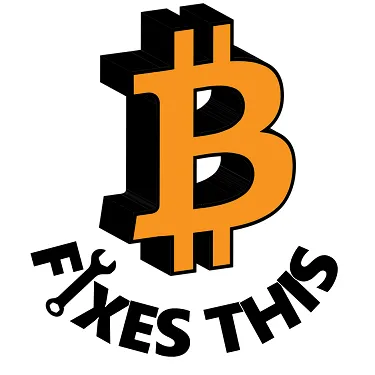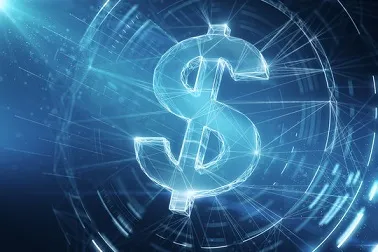 My girlfriend was convinced this was a fake scenario with fake names.
Oh, it's very real.
My girlfriend was convinced this was a fake scenario with fake names.
Oh, it's very real.
Cryptocurrency and taxes are a huge problem.
On a practical level, it is not even possible to pay your taxes 100% correctly even if you're not involved in crypto. Tax laws are that complicated and loop-holed to hell. There's always going to be something you missed. Did someone give you $20 to drive them to the airport? That's taxable income. Bet you didn't report that on your taxes. You're a criminal now.
This is why many times the IRS is very lenient with their punishments and also rely heavily on fines instead of actual jail time; They know exactly how ridiculous they are. Putting one person in jail for a year costs the state $42000 a year on average. California spends $8.5 BILLION dollars a year on the prison industrial complex. How's that for a mindfuck?
The IRS is in the business of generating income, not expending it. In fact, the IRS obviously pay for the prison industrial complex in the first place. No sense in bankrupting yourself by sending everyone to jail. Who would then pay for jail to exist?

Crypto Context.
So when we look at cryptocurrency, tax laws become not only x1000 times more complicated (making them literally impossible to follow) but also these networks aren't reporting to the IRS or even doing proper accounting like a regulated institution would be. Obviously, many people are going to just avoid that dumpster-fire entirely and just check the box on the form that says "no I don't own any crypto". I wouldn't recommend lying on an official federal document that you sign, but that doesn't change that fact that many will do it anyway if only to avoid the complexity and fear of being put under a microscope.
Flat tax
As the title implies the solution to all of this is to dumb down taxes back to a flat tax that can be calculated instantly by anyone. How cool would it be if you could cash as much money as you wanted out to your bank account and it only cost a 5% tax?
The rules of this system would be simple.
- All centralized exchanges that transferred fiat to bank accounts would skim 5%-10% off the top and give it to the government.
- This would be the only crypto tax and all that end of the year stuff would disappear.
- It doesn't matter if you made or lost money; if you want fiat in your bank account you gotta pay the 5%-10% tax.
Pros/Cons list
| Pros | Cons |
|---|---|
| It's easy and impossible to evade. | It taxes citizens that lost money or broke even. |
| It's instant and stress free. | It's instant and couldn't be deferred to the end of the year. This is an opportunity cost. |
| Very convenient and many people would obviously do it. | Very easy to circumvent if you pay for things directly with crypto and never cash out to a bank account (or transfer p2p). |
| It would generate a ton of revenue while at the same time allowing builders/innovators to accumulate more wealth. | People would complain that the rich aren't being taxed enough and that it's a burden on the poor. |
5% or 10%?
This is the sweet spot. Too much friction creates too many diminishing returns and chokes the industry, while too little doesn't generate enough income for the state and makes it too easy to move dirty money around. I always appreciate a 5% tax. As weird as it sounds, that's the fee for the World of Warcraft auction house, which is surprisingly a good testnet for a real economy. You can look that up on Google if you want; there are many studies on it.
The Netflix argument.
What does Netflix have to do with anything? Well, are people still pirating movies with torrents these days? Nope, that's not really a problem anymore. It took ten years, but the establishment finally pivoted into the correct direction and made a business model that was convenient enough to justify paying for rather than putting in that extra effort to get free movies and perhaps viruses and spyware on your computer. Now people just pay the Netflix sub because it's cheap, easy, and legal.
A flat tax for crypto is the exact same idea.
Make it super convenient and cheap to pay taxes, and everyone will gladly do it no questions asked.
I thought you said taxes are totally irrelevant.
Indeed, now that anyone can be their own central bank and anyone can print money out of thin air, the argument for taxes goes right out the window. If you are in a position of authority and you need money to pay for stuff, then at this point you should just be able to print the money and pay for stuff without taxing citizens. At least, that's the theory... we have to wait for mainstream adoption to kick into high gear before we see how this actually plays out in practice.

So then what is the point of taxes?
Taxes are great when they exist as a form of micro-charging. I've blogged a lot about micro-charges and how amazing they are and how real-time payment streams are the future of finance. When we want to guide the herd in a certain direction, we can use micro-charging (taxes) to achieve the desired result. Even something simple like charging 10 cents for plastic bags has a huge affect on public psyche. The difference between free and 10 cents makes a surprisingly huge impact on the usage of resources. The goal in this example was to reduce plastic garbage output, and it worked surprisingly well.

Taxes create friction
Sometimes friction is good. You wouldn't want to drive on a road that was made of ice, would you? Taxes can be the same way. We have to rebuild the entire paradigm of what taxes should be used for. I would argue that taxes are only good for discouraging people from performing a certain action and using that money to fund the solution to that problem or another problem within the community.

The most obvious context here is discouraging people from leaving your ecosystem. So imagine your city-state has a crypto and the leadership doesn't want people to exit the system with the value contained within the city. Conversely they want to entice value from the outside to enter the city. That is the PERFECT situation for taxes.
In this case, we charge 5% to anyone exiting the city, meaning City Coin is a reflection token that charges 5% and puts that money into a vault (if you trade into a token that exists outside the city). Where does that money go? Either to yield farmers who create the liquidity with the outside, or better yet it gets used as bait for outside money to enter the system.
Now if a bunch of billionaires leave your city you have a huge vault that acts as a honeypot that will offer money to outsiders who want to enter. Anyone that leaves creates entrance liquidity for everyone else. Taking this a step further the vault could also be used for other things like building internal infrastructure, and it could also be funded by other taxes (or just straight up inflation IE printing money).
When I was thinking about this yesterday I realized that this is exactly how my Magitek protocol works (or is supposed to work since I haven't worked on the project in like a year). Basically the only way to exit Magitek would be to trade FIRE tokens at a discount for Hive (because Fire tokens can be created by destroying Hive the only way to exit is to offer them at a slight discount).
USD is ironically the exact opposite of this.
I learned this when listening to Michael Saylor talk about Bitcoin from the perspective of a tech mogul. You never sell Bitcoin, you simply use it as leverage. That's because when you spend USD you incur no taxes but when you spend Bitcoin you incur heavy taxes.
In game-theory, USD is designed to be a game of hot-potato where you spend it as fast as possible because it is guaranteed to lose value over time in addition to incurring no taxes. This is why fiat has such a good history of being stable most of the time. It has high elasticity and high velocity and the supply is always slowly expanding over time (and contracting when necessary via elasticity).
What's the difference?
So basically the flat tax for our city state would ironically be exactly the opposite of a flat tax on Coinbase/Bittrex/Kraken. Rather than taxing people for exiting the system, the IRS would be taxing people that want to enter the system. This somehow makes sense because American citizens are already in America. America doesn't have to worry about everyone leaving America like a city-state would. Rather, America knows that people want USD because again, USD is very convenient to Americans. Therefore a tax to receive USD makes sense even though it's exactly the opposite of what we would do in a crypto community. I suppose this tracts considering fiat and crypto are opposites (debt vs store of value).
Conclusion
Borderless crypto does not play well with bordered governments. The entire legal landscape will be blown wide open because crypto can't be controlled by governments, and this is not something they've ever had to deal with before (except with torrents and it didn't affect them directly: only the entertainment industry). And let's be real, torrents won. Crypto will also win. They will have to pivot.
At a certain point crypto will be classified as actual currency. This is all but guaranteed when most products and services can be bought with crypto directly. That's when shit really hits the fan, because currency, like USD, can't be taxed for spending it (except for sales tax obviously). Things will get especially awkward when millions are earning their wages through crypto services pseudonymously without their "employer" never reporting to the IRS.
At the end of the day these networks are digital countries. This is something I've talked about at length, and it is ridiculous to assume that one country could tax another without defeating them in a war. But that's the thing about crypto and digital landscapes: the entire point of them is that they can't be subjugated via warfare. Again, this creates very awkward situations for all participants involved. While these crypto countries can't be taxed, dual citizens can be, but they will statistically continue to reject that narrative on a fundamental level because none of it makes any sense. Narrative matters.
A simple flat tax is really the only answer to these problems. Nothing else is going to work because of the complexity and utility of smart money. Developers will program around complex systems with ease. Implementing a flat tax on all bottlenecks that have a direct connection to bank accounts is the only way they are going to be able to play it. Of course it will probably take them ten years to figure this out, just like it took Netflix ten years to pivot around pirating entertainment IP. This time the IP is money itself. The stakes are much higher and both sides will fight harder. Stay safe out there.
Posted Using LeoFinance Beta
Return from Flat Tax: 5%-10% to edicted's Web3 Blog
